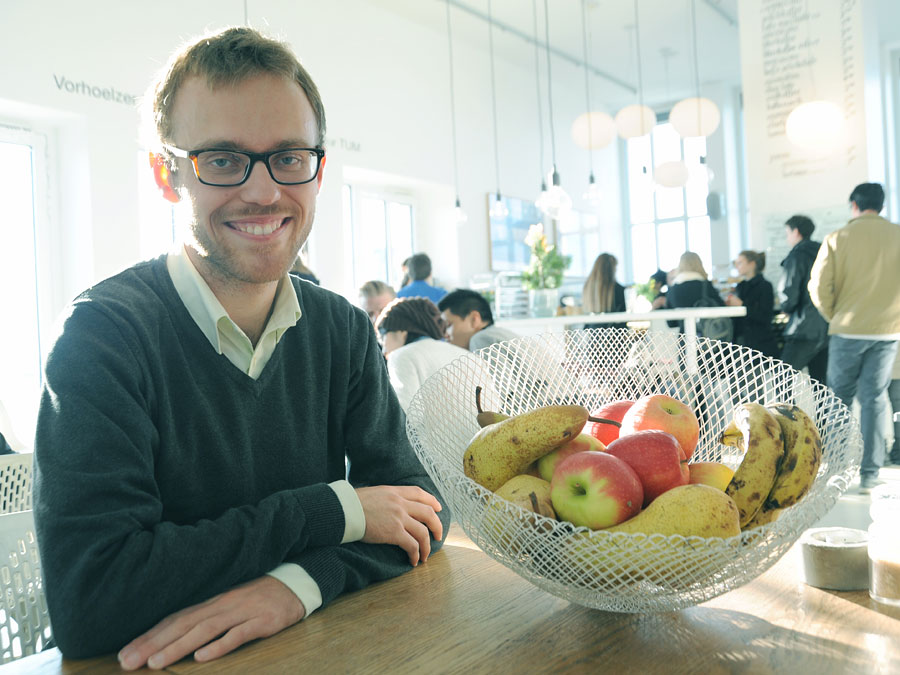Cookbook “QuasiVegan”:
Seven vegetable calories to one calorie of animal origin

TUMstudinews: Simon, how did you come across the idea of making a cookbook with vegan recipes?
Simon Rieß: At the Junge Akademie, one of the topics for our year was “Global Food Security”. At the beginning, we had very different ideas and approaches. Then, we settled on three working groups that focused on different subjects. My group addressed the issue of the waste culture associated with food.
That’s not necessarily only a “vegan” topic, is it?
Well, it is if you consider the aspect of wasting food and think ahead: We want to draw attention to the fact that seven plant calories are needed to produce one calorie of animal origin. Apart from providing information, our cookbook also offers specific instructions – and who could make better use of a cookbook than the freshers who have just moved out and who have to cook for themselves for the first time?
Are all of the authors of the cookbook vegans?
No, not at all. I’m the only one in the group who’s a vegan. The others don’t have a vegan or vegetarian background – but I would say they are all conscious meat eaters or “flexitarians”, flexible vegetarians.
That’s why your cookbook is called “Quasi-Vegan”?
Yes, that’s right. We chose the title because it’s easy to remember and because it doesn’t follow the ideologic black-and-white-thinking about “veganism”. It’s not primarily about telling everyone to become vegetarians or even vegans. If our book can convince someone who eats a lot of meat to eat significantly less meat – say only two or three times a week instead of every day – the effect is larger than if we convince a vegetarian to go vegan.
Why did you go vegan?
When I was still at school, a group of friends and I started fasting twice a year. We refrained from eating meat. When I came to Munich to study, I actually didn’t eat meat because high-quality meat was too expensive. Then, it didn’t make sense to stop eating meat during fasting any more, because it wasn’t a real renunciation.
Did you experience any immediate changes?
I started vegan fasting, and I noticed that never fell ill due to seasonal changes – and I generally felt a lot fitter. Thus, I simply continued with the vegan diet.
Do you sometimes have difficulties in keeping up the vegan lifestyle?
Not really. Especially in Munich, it’s not a problem to get vegan food at all. Even as a student on a tight budget, you’ll find plenty of vegan offers for lunch. In traditional Bavarian inns, however, vegans have little to laugh.
(Interview: Sabrina Czechofsky)
Simon Rieß (22) has a Bachelor’s degree in Computer Science at TUM and is currently working towards his Master’s degree in “Data Science”. Languages are his passion. After learning Spanish, he is currently studying Chinese and preparing for his year abroad in China. Apart from that, he is a “HiWi”, working on automatic translation, among other things. The cookbook “QuasiVegan” is available for free from the Junge Akademie. Please write an e-mail with your postal address to jungeakademie@zv.tum.de.
More information:
www.jungeakademie.tum.de